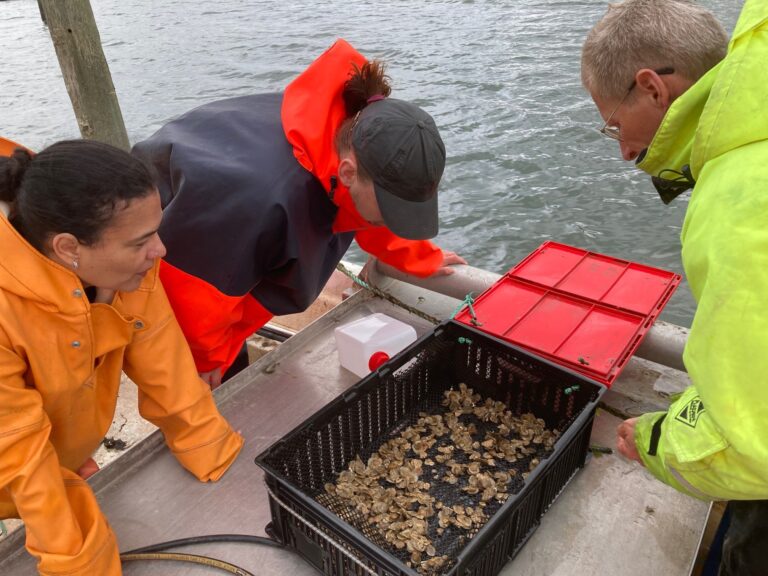As we work hard to implement our approach to oyster reef restoration in the Netherlands and the UK, we are also filling up our project pipeline to initiate even more reefs to steadily bring back the lost oyster reefs in our European waters and beyond. With our workload growing, our team expanding, and our outreach broadening, it’s time to introduce the dedicated individuals who’ve been working tirelessly behind the scenes. Let’s begin with our founder, George, the visionary driving force behind it all…
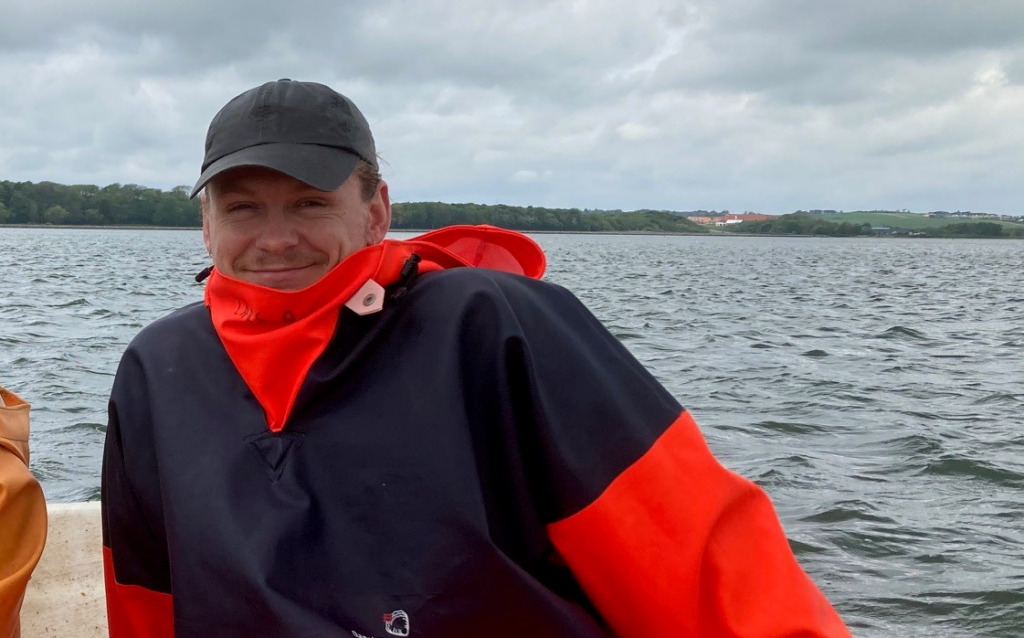
“The concept of Oyster Heaven is relatively new, but the idea itself has been brewing for a long time in my head. I have always been very frustrated how pureform conservation and regeneration has struggled to get the funding that it needs despite the fact that healthy nature is of such extraordinary and obvious benefit to our society. Working between charities and asset management, I spent a long time trying to understand what these blockages were.”
“One of the big things I realised was that most of us have an easier time getting the hang of new stuff by connecting it to ideas or stories we already know or by using comparisons. A big part of the origin of this idea was something that happened after I got my MBA in Rotterdam. Before I was even thinking about oysters, someone casually mentioned that a single oyster can clean up to 200 litres of water every day. I remember thinking to myself, why isn’t anyone selling these as water filters?”
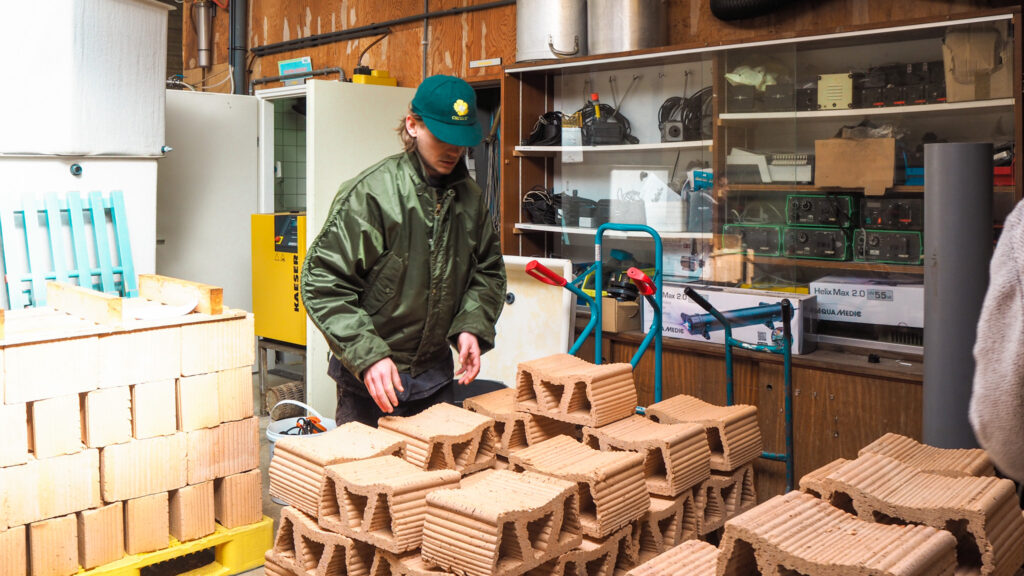

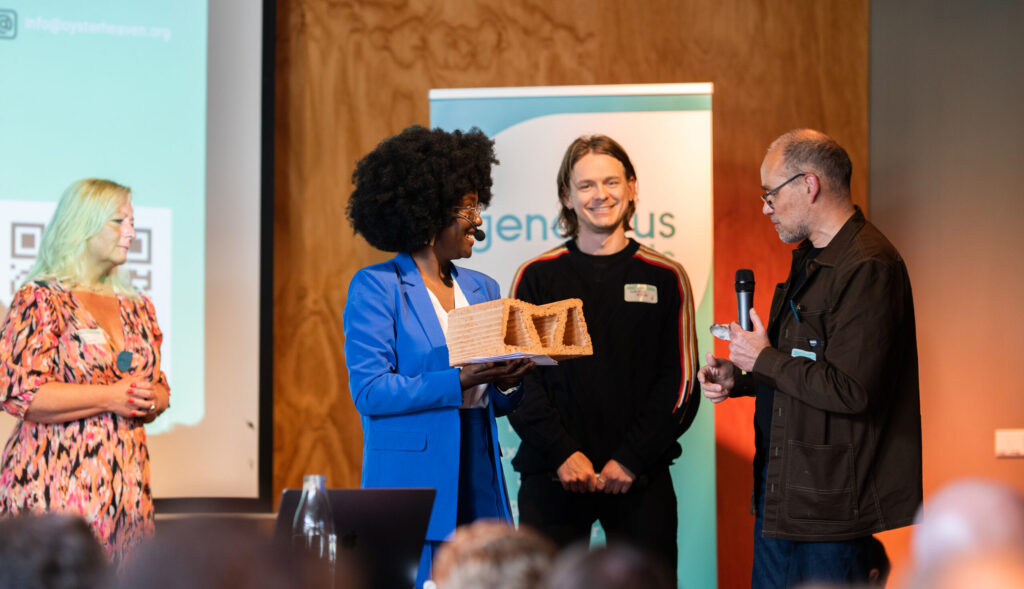
“Everything slowly started falling into place around this, creating a new selling point. Building the case for the value of an oyster beyond what you could sell its meat for. Not only water filtration, but biodiversity, coastal erosion and climate management. That this, on a capitalistic basis, could change the incentive system, if you could construct a model that would make it more valuable for an oyster to stay in the water than to take it out and eat it, then people might leave them alone and even start to plant them!” (NB. I am not a capitalism lover, it’s just the set of rules that we have and I am going to do my best to get them to work for oysters).
“For me, the most important impact that we could have is creating this financially scalable model for oyster reef restoration without the need for harvesting a resource. Proving a system where restoring and protecting oysters becomes more economically attractive than harvesting them. I imagine a future where anyone, from individuals to organisations, can profitably get involved in large-scale oyster reef restoration efforts magnifying and multiplying the global effort we need to make to restore health to our oceans.”
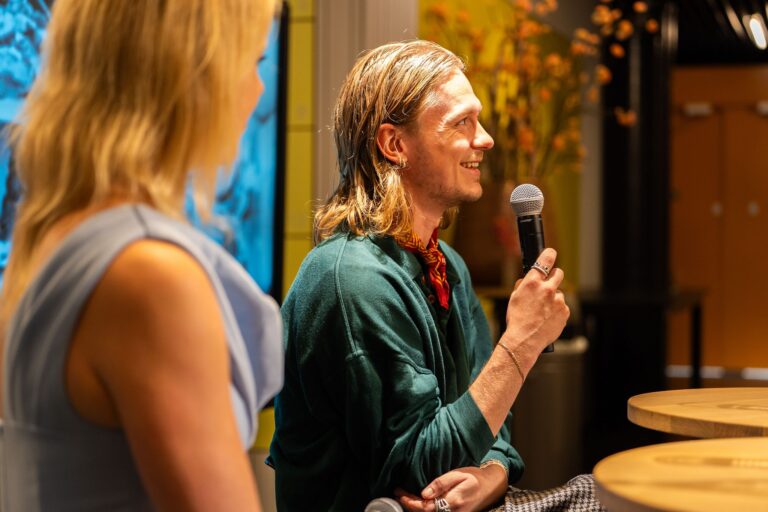
“Starting this company has definitely tested my patience. I am naturally quite an impatient person and when I was working in the past on quite narrow tasks that relied only on me completing my job, this was fine, it was mainly up to me how quickly things were done. Now, my work, and Oyster Heaven, is part of a much wider ecosystem that relies on lots of other groups, that also have a wide set of other responsibilities, to move forwards. This is personally often quite painful, but it is teaching me patience and empathy. I have a post-it note on my desk that reminds me to think about this every day….”
“I have always had a fear that I could be mixed up in a terrible HR situation, it was probably my biggest fear having seen many other businesses and teams be completely disabled by interpersonal issues. The more people you hire, the harder it becomes to avoid. Therefore, something that is maybe unexpected is the fact that this hasn’t happened yet! I don’t know if this should be a surprise, and maybe because I have thought about it so much, it has made it easier to avoid.”
“In fact it has been the reverse. I could never have expected what the energy, culture and composition of our team might have been. I couldn’t really picture it in my head. Now I am surrounded by all these lovely clever people and I am still not always over my imposter syndrome!”
